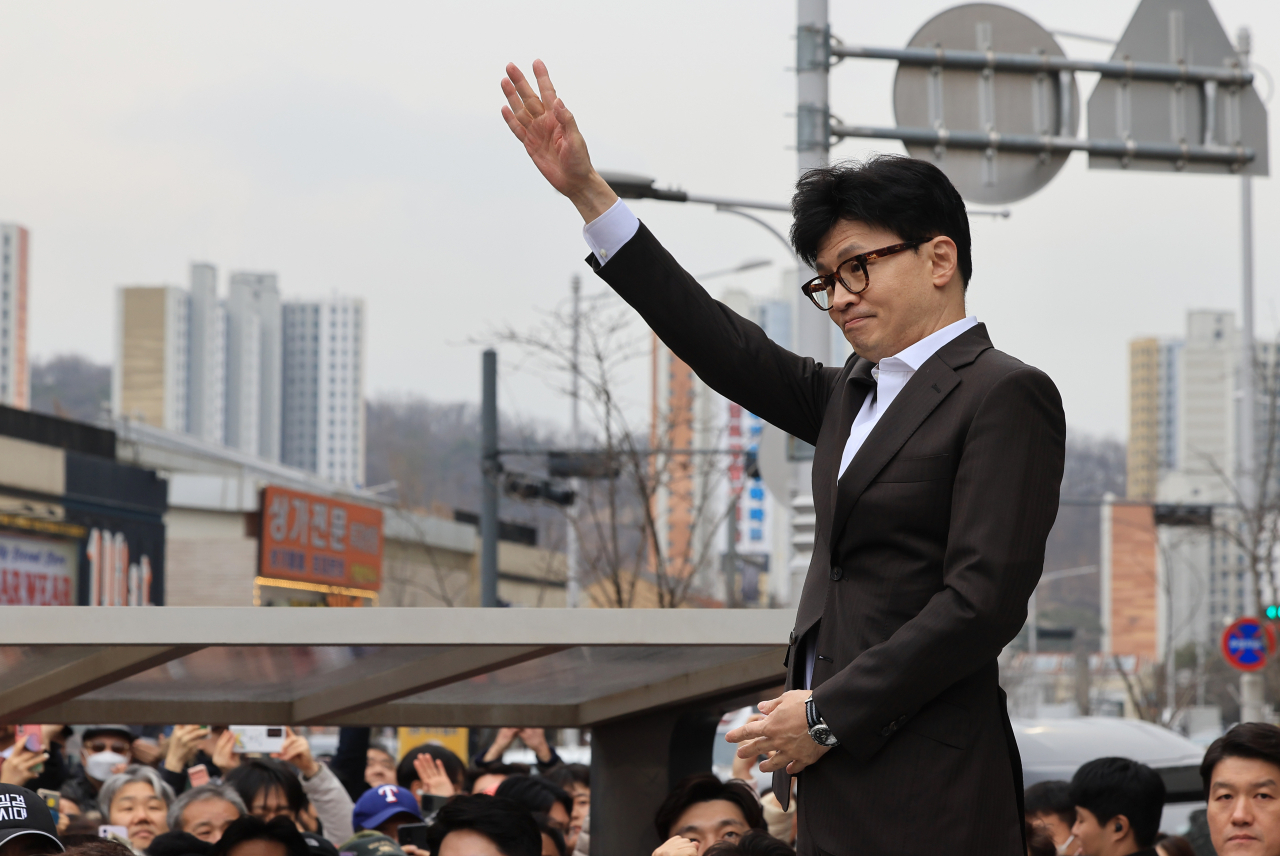Major parties compete with populist pledges, proposals
Ruling party interim leader mulls cutting back lawmakers' salary sparking criticisms of amplifying populist tone ahead of election
By Jung Min-kyungPublished : Feb. 4, 2024 - 16:09

The rival parties in recent weeks have fired off a flurry of competing pledges and proposals as they head into a general election in April, but critics denounced several of those promises for being populist.
The ruling People Power Party interim Chair Han Dong-hoon on Thursday indirectly proposed to slash lawmakers' salaries to almost half of what they are now.
During a meeting with other decision-makers in the party, Han suggested to "level the amount of tax the lawmakers pay to the amount paid by those who receive the median household income."
South Korean lawmakers receive an average salary of 157 million won ($117,000) per year, according to data provided by the National Assembly Secretariat last month. The salary gained 1.7 percent on-year.
Meanwhile, the median income in Korea for four-person households stood at an annual 68.76 million in 2023, the latest data by the Ministry of Health and Welfare showed.
Han highlighted the role of lawmakers as "representatives of the people and not just high-ranking public officials," as a key motive behind his suggestion.
But his proposal received a divided reception from critics, claiming that it is a simplistic attempt to win back voters, while merely acknowledging the public's criticisms of the lawmakers' high salary compared with their lackluster performance.
"If Han continues to add unfeasible proposals to the party's policy reform agenda, it will only fuel the public's mistrust against the lawmakers," Cho Jin-man, a politics professor at Duksung Women's University said.
"(Han's proposal) could backfire and increase the chances of graft acceptance in the National Assembly. Instead of cutting back the salary, bolstering the law for a transparent budget and spending could be the solution," he added.
Han's remarks come amid growing criticisms of the rival parties rolling out "unfeasible" pledges in terms of cost and implementation.
The main opposition Democratic Party of Korea announced early Thursday plans to launch a renovation project that would relocate several elevated railways across the country underground. The project, which aims to reduce noise pollution and improve the livelihoods of the residents near such railways, is estimated to cost a total of 80 trillion won, the party's top policymaker Lee Gae-ho told reporters later.
The ruling party announced a similar renovation project for the elevated railways and the areas surrounding them.
"The railway renovation plan would require a mammoth-sized budget and has been repeatedly brought up by the rival parties in the recent decade, but was never really carried out," Park Heung-su, a railway policy researcher at the Public Policy Institute for People said.
"We need to question whether the plans are economically, socially and environmentally sustainable."
The People Power Party is also pushing for its so-called "mega city project" which plans to legally merge some of Seoul's satellite cities including Gimpo, into the nation's capital. Han said at a civic group event on Saturday that "Gimpo will become Seoul when the magnolia blossoms in the spring."
Former President Moon Jae-in lambasted the project last month through a pre-recorded video message shown at a left-wing event, calling it "an irrational policy" that would result in a wider economic and social polarization among Seoul and other cities.






![[Weekender] How DDP emerged as an icon of Seoul](http://res.heraldm.com/phpwas/restmb_idxmake.php?idx=644&simg=/content/image/2024/04/25/20240425050915_0.jpg&u=)



![[KH Explains] No more 'Michael' at Kakao Games](http://res.heraldm.com/phpwas/restmb_idxmake.php?idx=644&simg=/content/image/2024/04/28/20240428050183_0.jpg&u=20240428180321)







![[Herald Interview] Mistakes turn into blessings in street performance, director says](http://res.heraldm.com/phpwas/restmb_idxmake.php?idx=652&simg=/content/image/2024/04/28/20240428050150_0.jpg&u=20240428174656)
